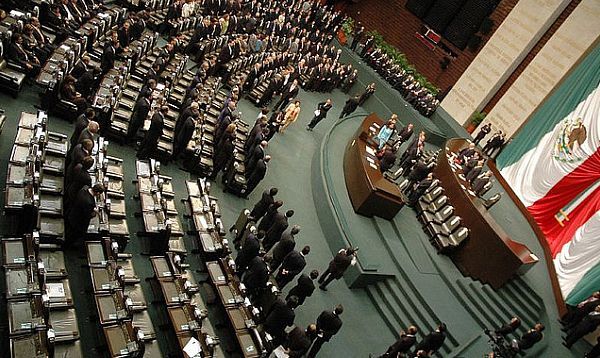Mexico City, Mexico – Senate committees have begun discussions on a proposed law that would establish criteria and procedures for the suspension of basic rights by the government — whether in a specific location or in the entire country — due to an exceptional threat.
The law could be used to ban protests if Congress deems it a serious disruption. Last December, the Chamber of Deputies’ Human Rights Committee approved a law that would restrict protests in Mexico City, which was widely condemned by human rights groups.
As proposed by President Enrique Peña Nieto, the law would establish that "the restriction or suspension of basic rights will only occur in the event of invasion, serious disturbance of public peace, or other situation that puts society in serious danger or conflict."
If approved, the law would allow the sitting president to propose the temporary suspension of basic rights, which would be have to be approved by congress within a 48-hour period. If congress rejects the suspension, the president cannot propose the measure a second time unless further developments occur.
The law allows the government to suspend basic rights "if they are an obstacle to facing an exceptional situation in a diligent manner, provided that the suspension occurs for the least amount of time possible."
The law would not allow the government to temporarily suspend the right to freedom from discrimination, to the recognition of legal personality, to personal integrity and the protection of one’s family, to a nationality, the freedom of thought, or the rights of children, and political rights. It would also be prohibited from legalizing the death penalty, slavery, forced disappearance, or torture.
Original Story


